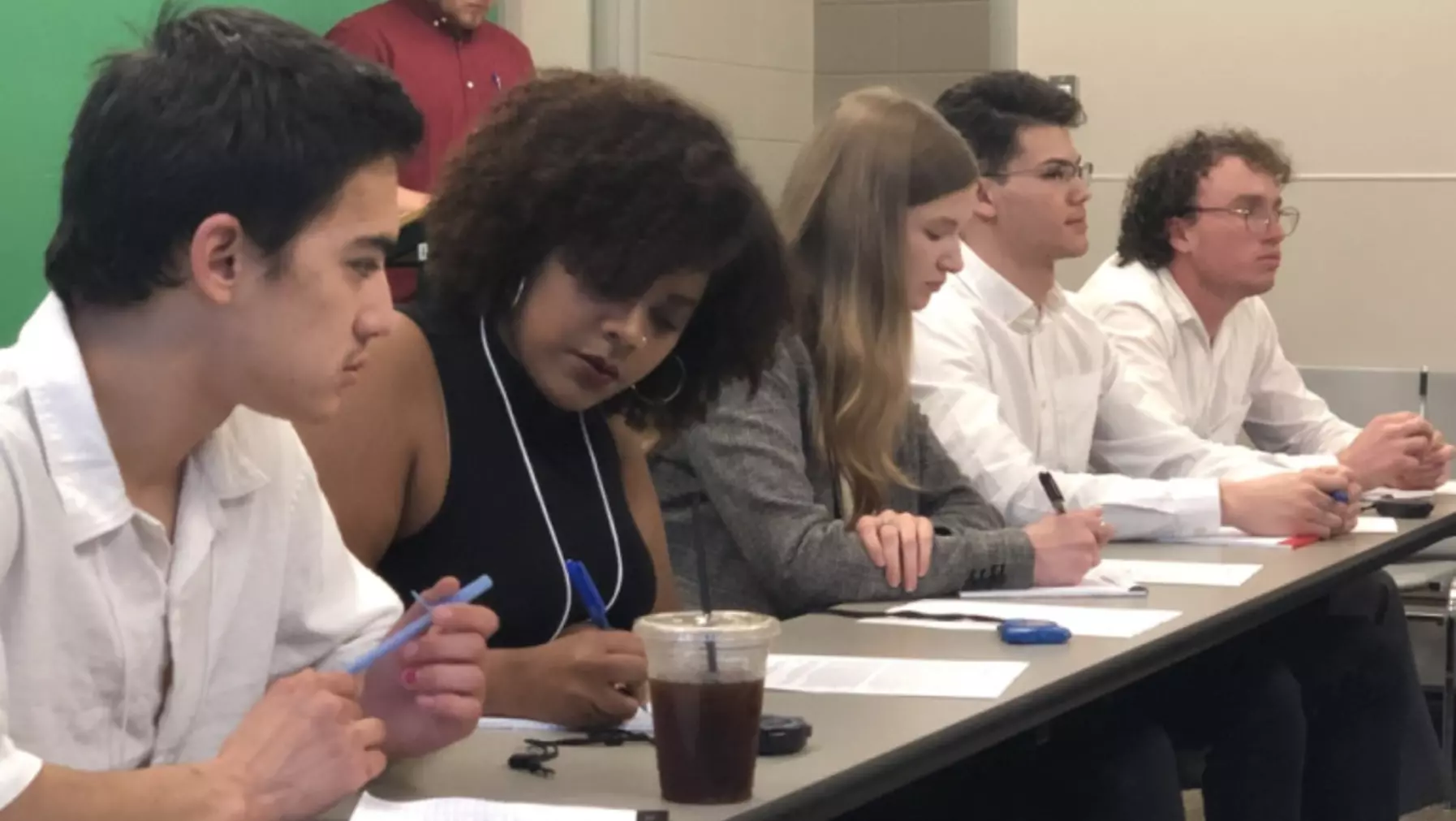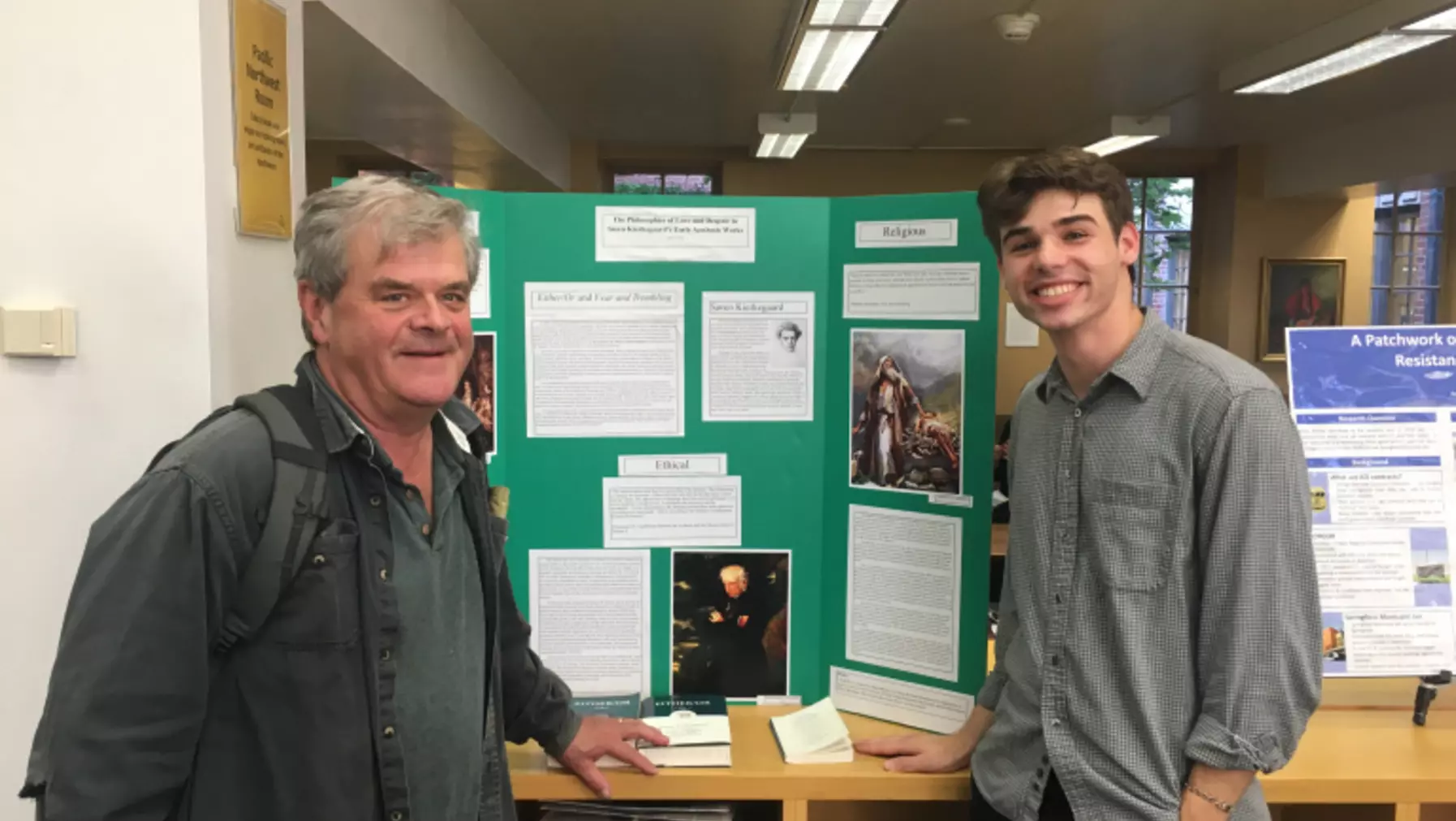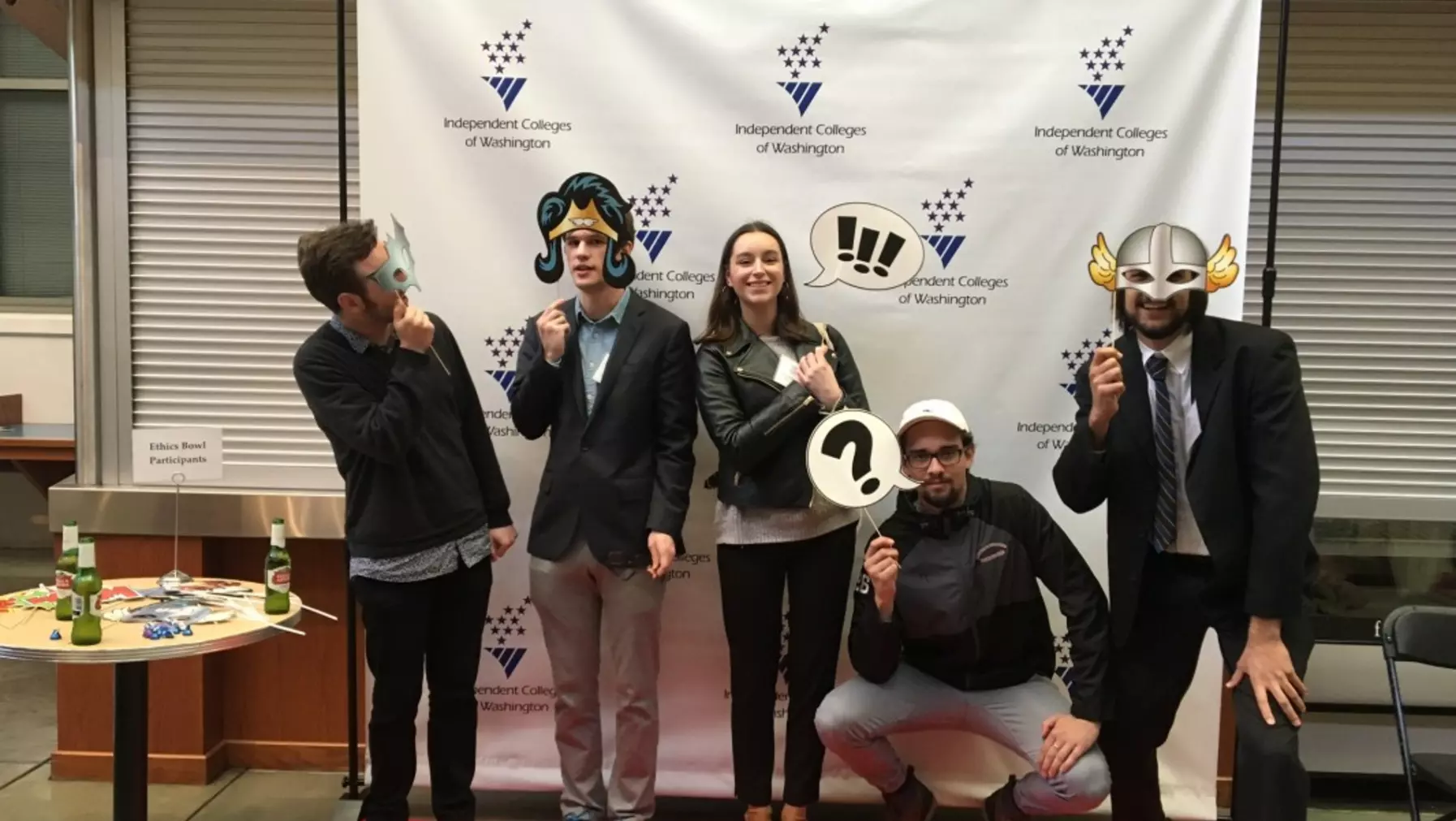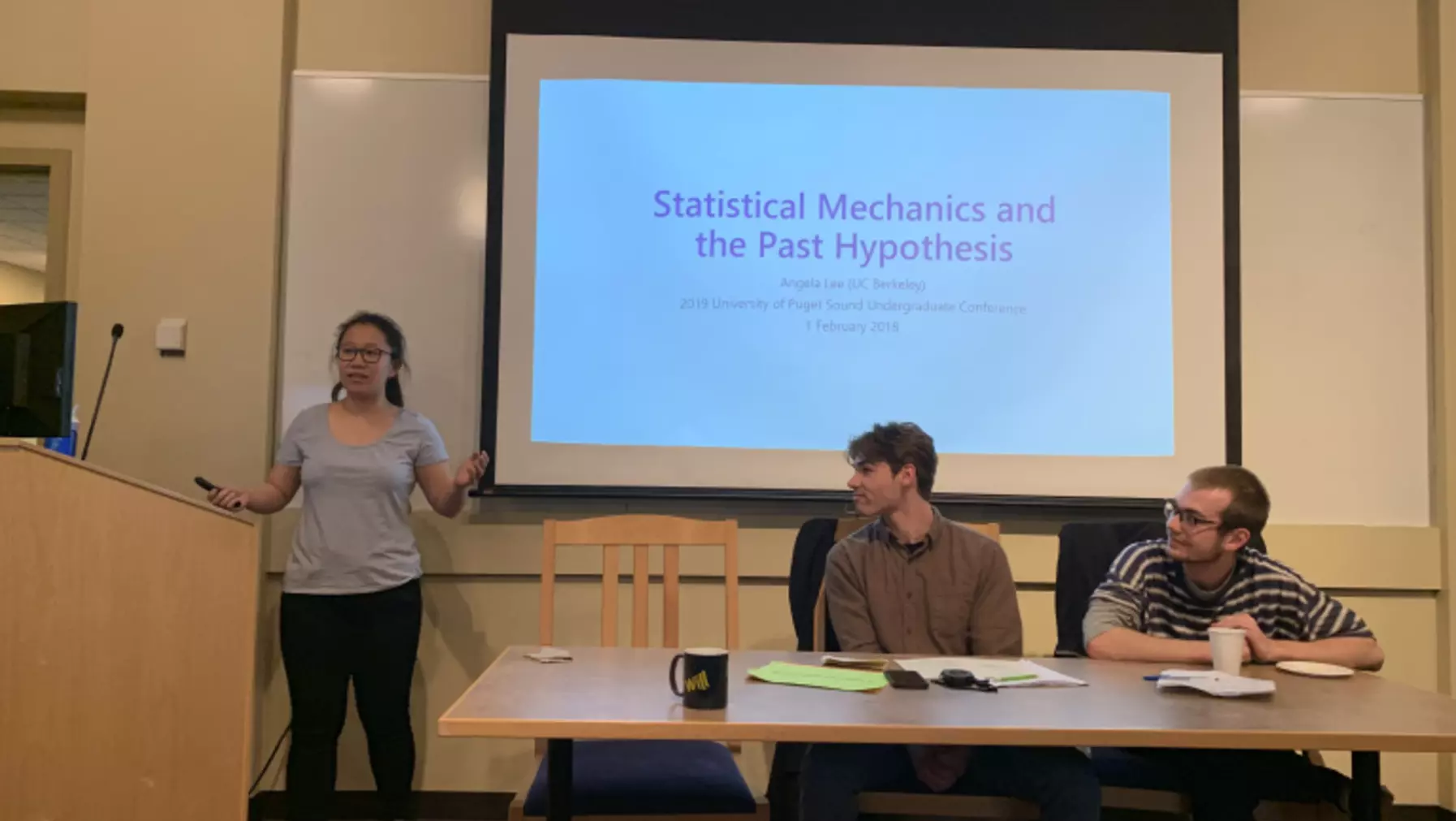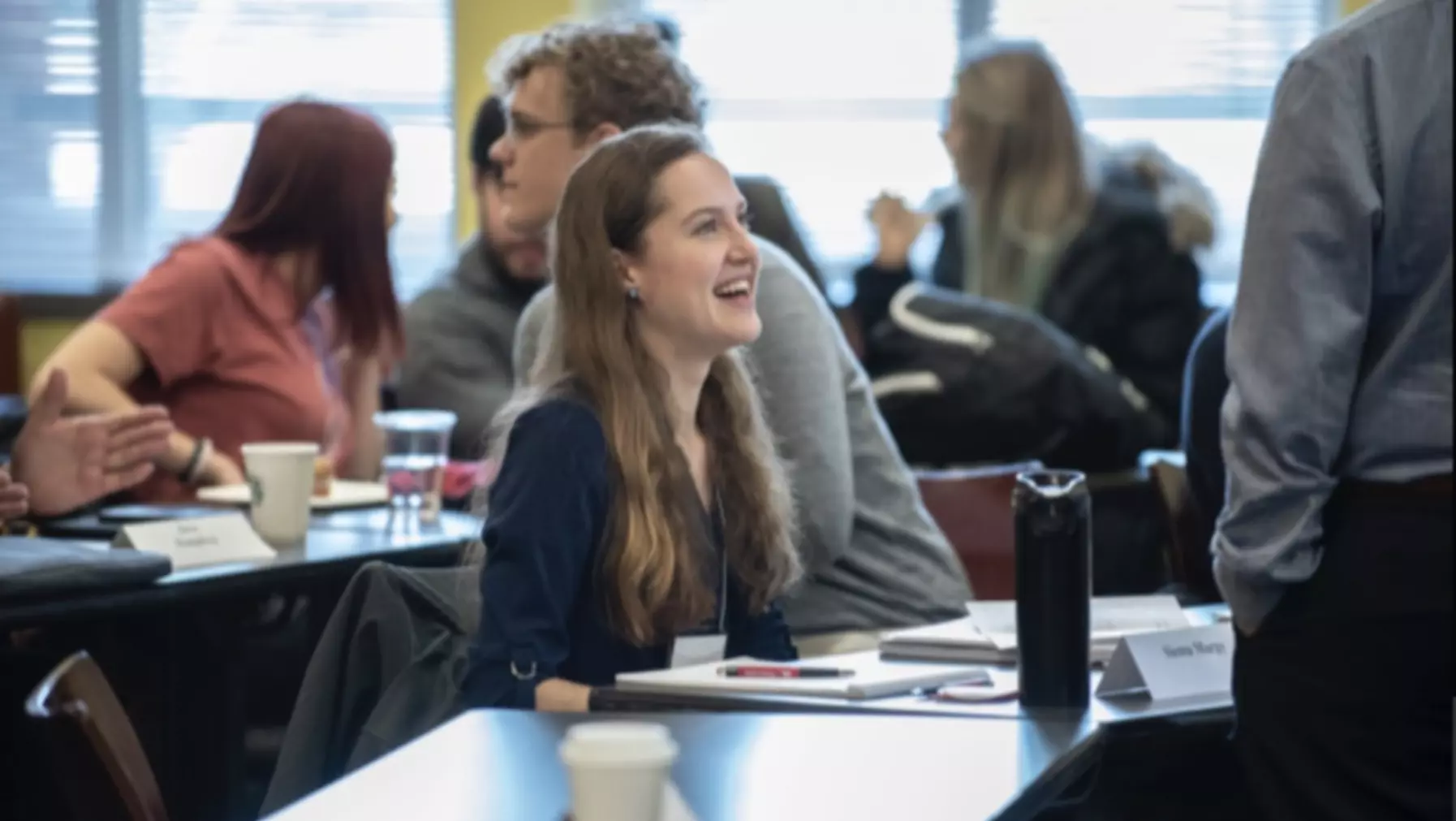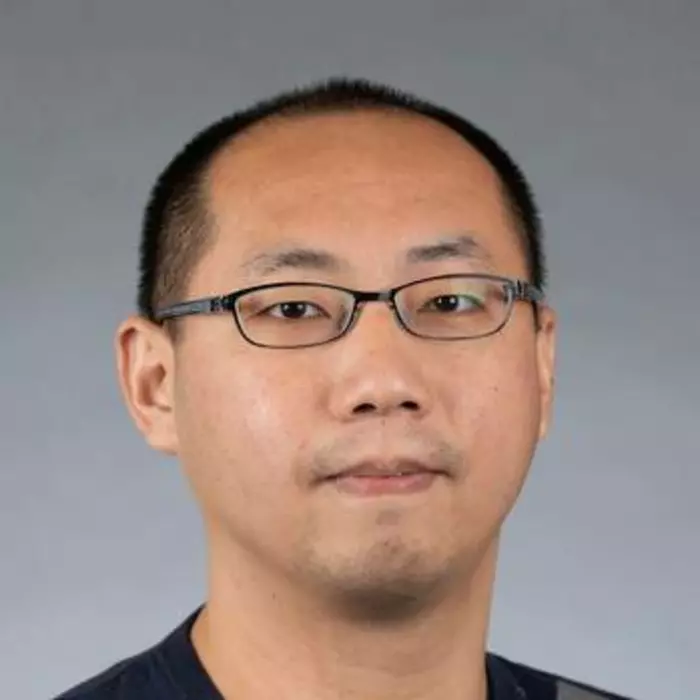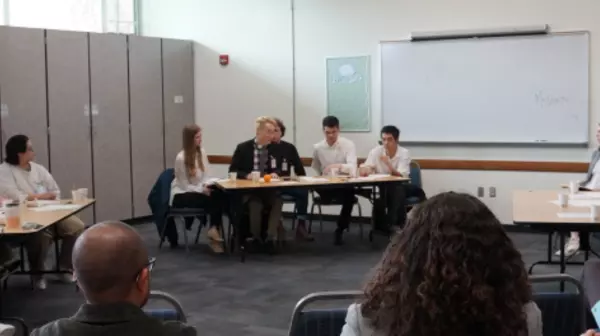What is the meaning of life? Are you dreaming right now? Is free will an illusion? What is justice? Is your mind just your brain? Is it immoral to eat meat? What is gender? Can science tell us everything there is to know? How does race affect us?
The philosophy department at Puget Sound introduces students to influential historical and vibrant contemporary philosophical work. In so doing the department stresses intellectual values traditionally associated with the study of philosophy: breadth of outlook, rigorous argumentation, imagination, consistency, systematicity, and the dialectical interplay of different minds. It contributes to a liberal arts education by helping students better understand the world, who they are, and what they should do. Philosophy students learn how to think critically, how to write clearly, and how to reason effectively, which prepares them to pursue a wide variety of career interests.


